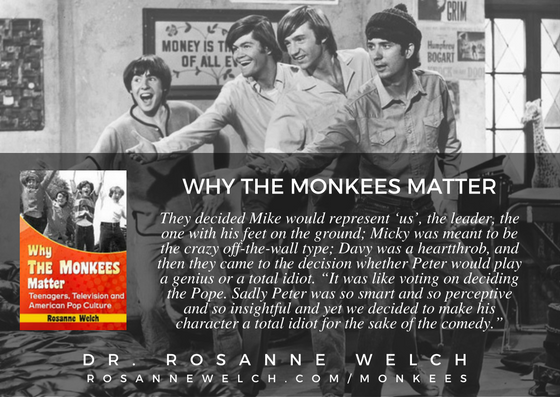You Can Please Some of the People Some of the Time… None of the People All of the Time: A History of the Art of Adaptation in Movies like Dune, The Godfather, Harry Potter and More!
Dr. Rosanne Welch speaks on A History of the Art of Adaptation in Movies like Dune, The Godfather, Harry Potter and More! at the California State University, Fullerton Library
Part of the program series for Dune by Frank Herbert: A 50th Anniversary Celebration.
Watch this entire presentation
Transcript:
This is a huge change in terms of what we can do in movies. That doesn’t mean we stop having pressure to change particular movies and this one is probably my all time favorite movie in the whole history of the world, The Godfather, which I always make film students watch if they haven’t, because it’s quite brilliant. But as a kid, I snuck a copy of this and read it when I wasn’t supposed to. It was in the adult section of the library so I had a friend sneak it out. Instead of going to a liquor store and getting liquor, I got The Godfather. Som then I could read it and figure out — because I had seen the movie and really wanted to know more about it. Now, in the movie, we all know Marlon Brando is going to play Vito Corleone and it is a pretty good version of the book, but there are things they can’t do. The first thing is they had great trouble, not with any film rating system, despite the violence that will appear in this film. Violence not so bad. It’s the sex and bad words we don’t like children to see. Violence, they can see all kinds of.
About this talk
Dr. Rosanne Welch (RTVF) speaks on the craft of history of film adaptations from the controversy of the silent film Birth of a Nation (protested by the National Association for the Advancement of Colored People in 1915) to Breakfast at Tiffany’s (to which author Truman Capote famously said, “The only thing left from the book is the title”) to The Godfather . Naturally, the behemoth in adaptation – Harry Potter (which depended on the relationship created by adapter Steve Kloves and author J.K. Rowling) will be discussed, as will the subject of this month’s celebration: Dune.
Date: Wednesday, October 14, 2015 Time: 1:00pm – 2:00pm
About Dr. Rosanne Welch
Dr. Rosanne Welch is a professor in the Low Residency MFA in Screenwriting Program from Stephens College, California State University, Fullerton, Mount San Antonio Community College and Cal Poly Pomona. In 2007, she graduated with her Ph.D. in 20th Century U.S./Film History from Claremont Graduate University. She graduated with her M.A. in 20th Century United States History from California State University, Northridge in 2004.
Welch is also a television writer/producer with credits for Beverly Hills 90210 , CBS’s Emmy winning Picket Fences and Touched By An Angel . She also writes and hosts her own podcasts on 3rdPass.media, her first one titled “Mindful(I) Media with Dr. Rosanne Welch.”
Her upcoming book, “Why The Monkees Matter: Teenagers, Television and American Pop Culture” will be published in Fall 2016
Three Ring Circus: How Real Couples Balance Marriage, Work and Kids and The Encyclopedia of Women in Aviation and Space are two books she has written. Los Angeles Times and the Journal of Screenwriting hold some of her published articles.
Dr. Rosanne Welch Web Site and Blog
Podcast: Play in new window | Download
Subscribe: RSS
![Adapting The Godfather from A History of the Art of Adaptation [Video] (0:52)](https://rosannewelch.com/wp-content/uploads/2016/11/adapt-23-godfather.jpeg)

![More on the The Monkees Influence on Popular Culture from An Interview with Dr. Rosanne Welch, Author of “Why The Monkees Matter” on the Zilch Podcast [Audio]](https://rosannewelch.com/wp-content/uploads/2016/02/Zilch48-940x198.jpg)

![Censorship in 1960’s Television from 1960’s TV Censorship and The Monkees with Dr. Rosanne Welch [Video] (1:05)](https://rosannewelch.com/wp-content/uploads/2016/10/monkees-censorship-08-1960s-tv.jpeg)

![Manipulating MPAA Ratings from A History of the Art of Adaptation [Video] (0:31)](https://rosannewelch.com/wp-content/uploads/2016/10/adapt-22-mpaa-2.jpeg)
![The Muppets and The Monkees from 1960’s TV Censorship and The Monkees with Dr. Rosanne Welch [Video] (1:01)](https://rosannewelch.com/wp-content/uploads/2016/10/monkees-censorship-07-muppets.jpeg)
![Why The Monkees Matter Presentation for St. Scholastica Academy Honors Sociology class [Video] (40:43)](https://rosannewelch.com/wp-content/uploads/2016/10/rmw-scholastica.jpeg)